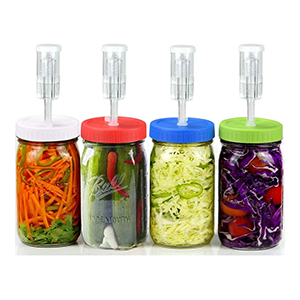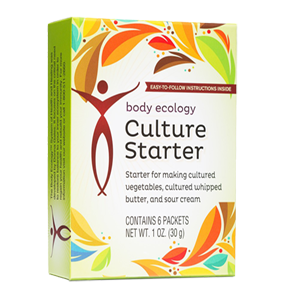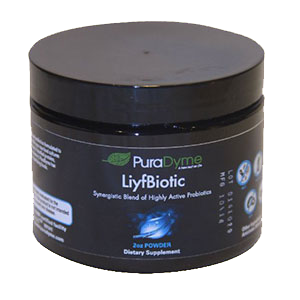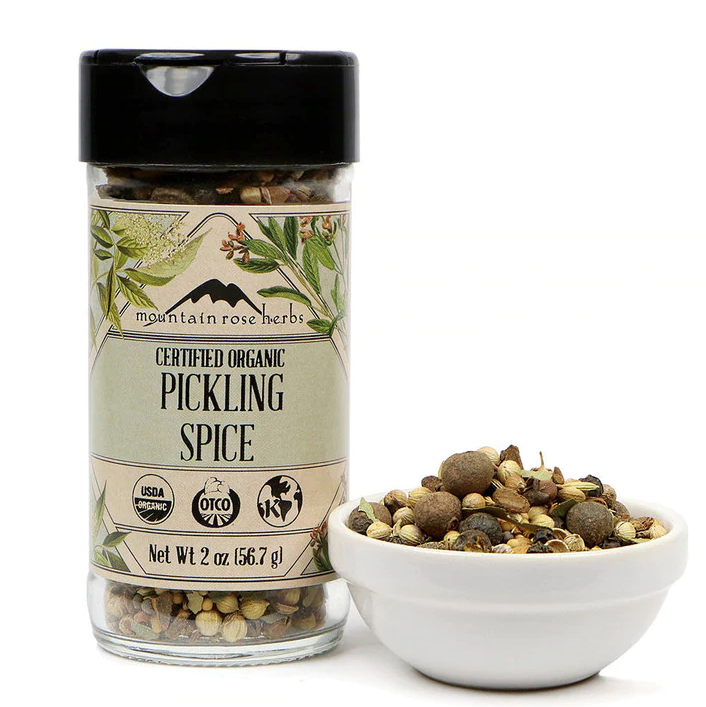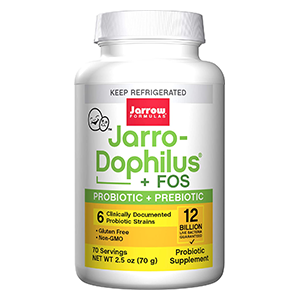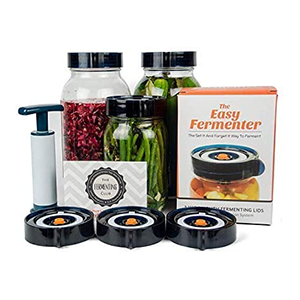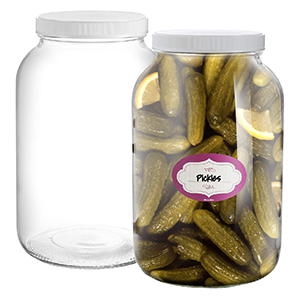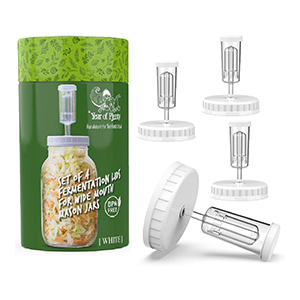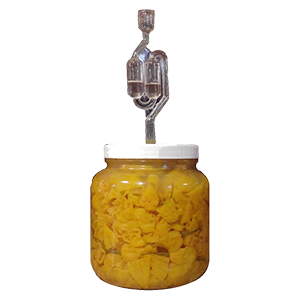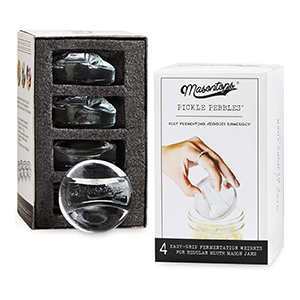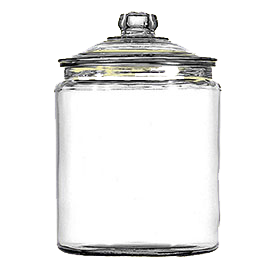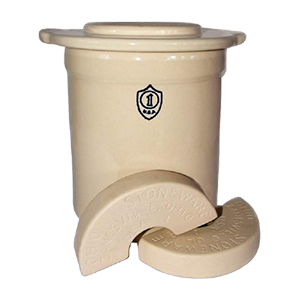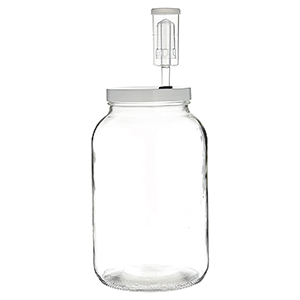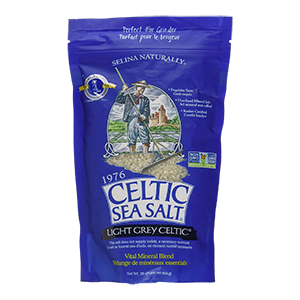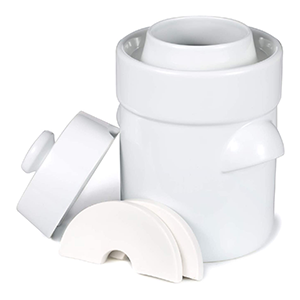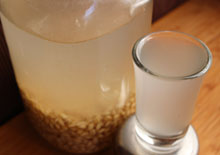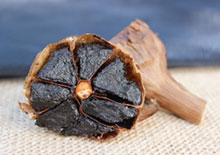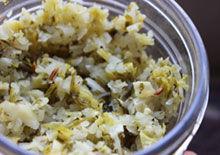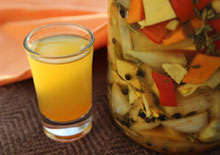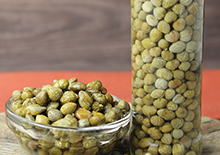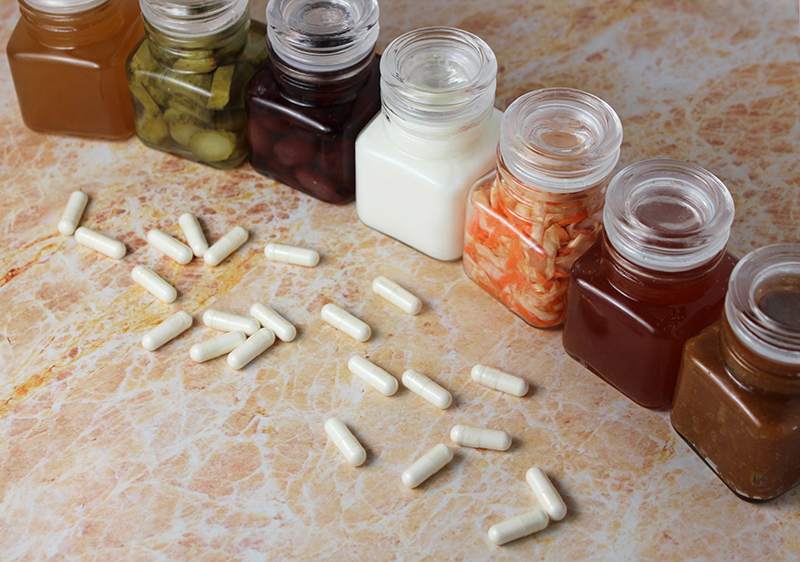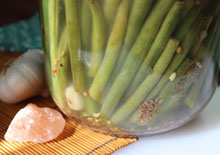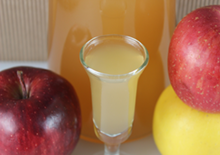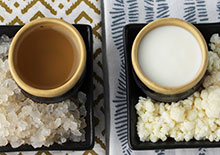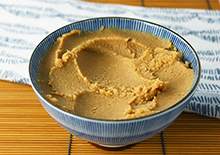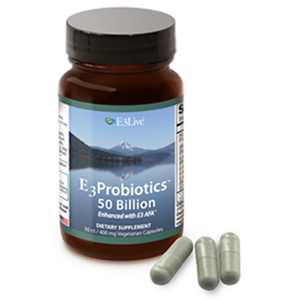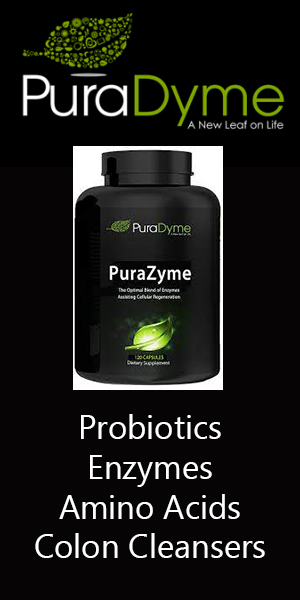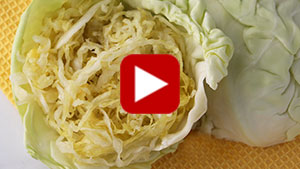- Home
- Fermented Foods
- Benefits of Sauerkraut
Benefits of Sauerkraut for a Healthy Gut Microbiome
Intro | Top 3 Benefits | Sauerkraut Probiotics | Cabbage Goitrogens? | Raw Vs Pasteurized | Why Make Homemade? | How to Use | Precautions | Shop
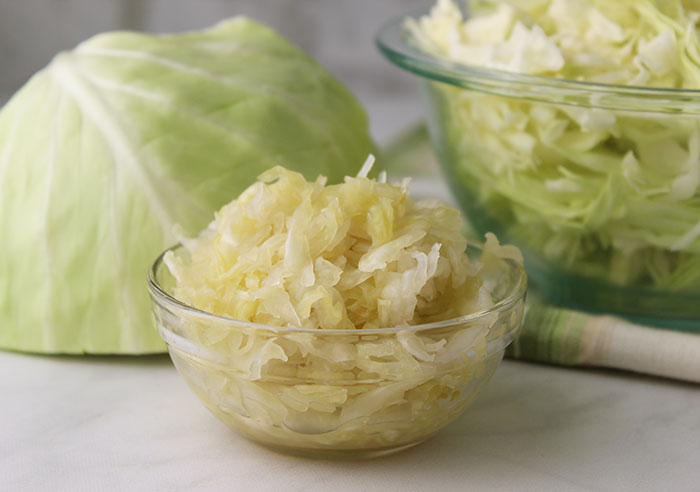
Sauerkraut is one of the world's oldest fermented foods that first came about as a way to preserve food before other modern-day methods were utilized. It is made via a naturally occurring lacto-fermentation process that is prepared without heat or pasteurization techniques.
The concept of cabbage fermentation is believed to have initially originated in China, but fermented cabbage was further developed into the sauerkraut we know and love today by those in Central European countries, especially Germany where it gets its name sauerkraut (sow-uhr-krowt) or "sour" (sauer) "cabbage" (kraut).
Table of Contents
Intro | Top 3 Benefits | Sauerkraut Probiotics | Cabbage Goitrogens? | Raw Vs Pasteurized | Why Make Homemade? | How to Use | Precautions | Shop
As the name implies, it is essentially made with one key vegetable ingredient: finely shredded or chopped cabbage that is fermented with salt in its own brine or juices. Different than East Asian cabbage ferments, like kimchi, sauerkraut is commonly spiced with seasonings like caraway, juniper berries, dill seed and sometimes fruits like apple or cranberry.
Sauerkraut has experienced renewed popularity here in the Western U.S. ever since the late 1990's. This is when many health seekers, including ourselves, began making it homemade-style in gallon glass jars.
Today, traditional fermented preparations of raw unpasteurized sauerkraut are widely available in stores and from online suppliers.
Most people enjoy fermented cabbage for its distinctive pickled flavor, but what are the benefits of sauerkraut that make it a health-enhancing food condiment? Here we will discuss the top 3 reasons you might want to include more of it with your daily meals.
Top 3 Benefits of Sauerkraut
1) Provides Probiotic Nutrients
2) Can Help Improve Digestion
3) Supports Immune Functions
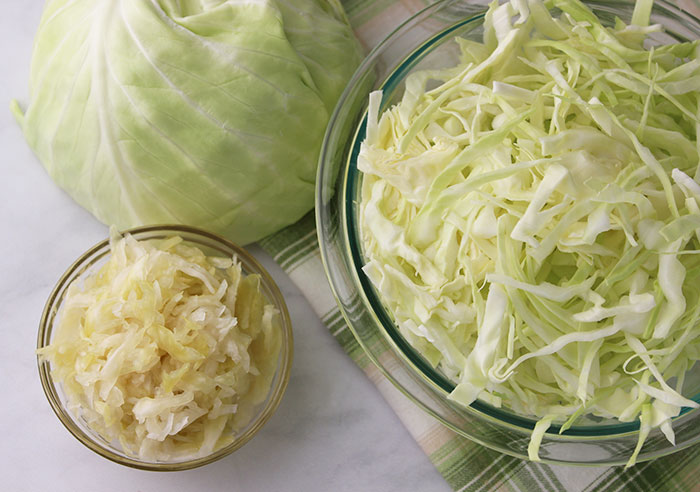
1) Provides Probiotic Nutrients for Healthy Gut Microbiota
In recent years, the study of human gut microbiota has become a topic of extensive study. This is a complex community of microorganisms that exist predominantly within the human gastrointestinal tract.
The research initiative called the Human Microbiome Project, established in 2008 and funded by the U.S. National Institutes of Health, has sought out to further provide more "comprehensive characterization of the human microbiome and analysis of its role in human health and disease." (*)
Although the diversity of the intestinal communities and their functions is still currently being explored, a healthy balance of gut microbiota, also referred to as "gut flora" or the "intestinal microbiome", is recognized to have a huge influence on our human physiology and overall long-term well-being.
The name "brain gut-microbiome axis" is in fact often used to
describe the important role that gut flora have in the biochemical
signaling that occurs between the GI tract and the central nervous
system.
It is identified that certain factors can throw off
the optimal ratio of "friendly bacteria" to other species or fungal
genera like Candida, which can tend to over-dominate when the body is in
a weakened state or health is compromised. Some contributions to these
potential imbalances may include poor dietary choices, emotional stress,
exposure to chemicals, toxic build-up in the body in addition to the
widespread use of antibiotics.
It has been recognized,
however, that gut microbiota can be intentionally manipulated through
specific diet regimens as well as the intake of probiotic-rich food
sources. In a 2017 article, it was purposed that one's diet is considered a key factor in influencing gut microbiota during the course of one's lifetime.
When
humans ingest strains of lactic acid bacteria, they can colonize the
intestinal tract, grow in number, thwart the overgrowth of less
beneficial species and increase the chances of maintaining and/or
re-establishing a healthy intestinal microbiome.
In a 2018 published review analyzing sauerkraut fermentation, it was conveyed that certain LAB strains "have been purported to act as probiotics that contribute to human health and microbiome stability."
Sauerkraut Probiotics and Lactic Acid Bacteria
The four predominant types of bacterial phyla in the human gut are Firmicutes, Bacteroidetes, Actinobacteria, and Proteobacteria. The lactic acid bacteria come from the phyla Firmicutes.
Sauerkraut is made via a lactic acid fermentation or "lacto-fermentation", a process that occurs when vegetables, like cabbage, are tightly packed (usually with sea salt) into an oxygen-free brine solution and fermented for about 7 days at an ideal temperature ranging between 67°-72°F (19-22°C). This produces an acidic environment which supports the growth of probiotic lactic acid bacteria (also called LAB) yet inhibits the growth of other strains or harmful pathogens.
These bacteria are naturally present on the raw cabbage leaves as well as other vegetables, but when chopped and packed within the salty brine liquid, they become a substrate or food for these beneficial microbes and the medium upon which they can proliferate.
During fermentation, the natural sugars in the leaves are converted to lactic acid which consequently produces different anerobic LAB strains in the genera Lactobacillales, including Leuconostuc, Lactobacillus, Lactococcus and Pediococcus.
Within each one of these genus classifications are numerous other species. (*) Some common varieties found in sauerkraut may include:
- Lactobacillus acidophilus
- Lactobacillus plantarum
- Lactobacillus brevis
- Pediococcus acidilactici
- Leuconostoc mesenteroides
Lactic acid bacteria, in fluctuating proportions, are produced at various stages of the fermentation process and supply different taste and textural qualities.
In some research it was also reported that salt concentration and atmospheric temperature during fermentation can also effect amounts and types of LAB strains present in the end result.
About Probiotic Supplementation and Sauerkraut Benefits
There are probiotic supplements, which often include LABs as well as Bifidobacterium, that can be taken to potentially help repopulate the gut microbiome. However, food-based probiotic-rich sources are often believed to be more effective than isolated laboratory-derived forms that may not survive the acidic conditions of the stomach.
Many holistic health practitioners in fact encourage taking probiotic supplements WITH foods like sauerkraut as this method is believed to offer greater nutritional uptake.
In addition, these probiotic powders can also be used to inoculate homemade sauerkraut to ensure microbial diversity.
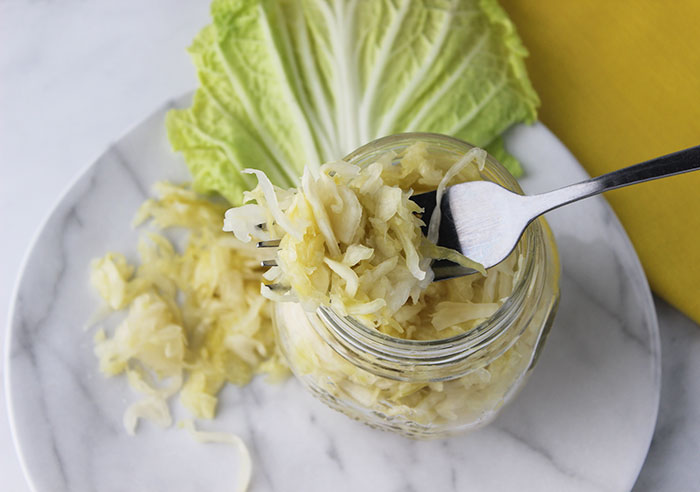
2) Raw Sauerkraut Can Help Improve Digestion
Live raw sauerkrauts are also known for their high amount of enzyme activity. These enzymes, like protease, lipase and amylase, are produced by the transformative actions of lactic acid bacteria. (*)
Enzymes in a jar of cultured sauerkraut are what help to break down the vegetable, in this case cabbage, and basically pre-digest it. These food enzymes are health-promoting substances and are abundant in fermented sauerkraut's that have not been pasteurized.
Consuming small quantities as a side dish or condiment with meals is known to improve the digestion of heavier cooked foods and animal-based proteins, fats as well as starchy foods like grains, pasta and potatoes.
If you are new to cultured vegetables, it is best to start with smaller amounts, around a tablespoon and slowly increase quantity over time. Usually not more than 1/4-1/2 a cup is consumed at one serving. If you happen to overdo it, you will most likely experience bloating and some flatulence.
Sauerkraut can also help to promote bowel regularity and is viewed as a healthy food choice for ketogenic diets or weight loss protocols.
Benefits of Sauerkraut, A Preventative Healthcare Approach
Many health experts agree that a healthy life begins with a healthy digestive tract. When digestion is "off track" it can affect many bodily functions and hinder the efficiency of the vital organs and glands.
Likewise,
the ability to completely digest the foods we eat helps keep us in
better shape for reducing the risk of acute and chronic illness and
disease further down the road.
In numerous cultures around
the world, fermented vegetables served with meals are not only valued
for their flavor enhancing qualities, their naturally sour pickled taste
is known to improve digestive capacities.
Integrating a certain amount of cultured foods like sauerkraut, kimchi or your own homemade cultured vegetables into the diet can be a preventative approach to maintaining health at its root in the digestive system.
Do You Have Digestive Disorders Like IBS, Colitis or Leaky Gut?
While many online health sites often claim that fermented vegetables are good for digestive disorders like IBS, colitis and leaky gut, we would err on the side of caution when using foods like sauerkraut for such sensitive health issues.
Although some research does show potential improvement for conditions like IBS , these foods need to be slowly introduced to avoid intolerant reactions (*), ideally after initial healing as taking place under the guidance of a qualified health professional.
Does Fermentation Effect Goitrogens in Cabbage?
Cabbage is a cruciferous vegetable and fermentation does not reduce goitrogen content.
While the small amounts of sauerkraut typically consumed are probably not going to have much of a goitrogenic impact, for those with a hypothyroid you may wish to make homemade ferments using other vegetables rather than cabbage or other crucifers.
3) May Support Immune Functions
Sauerkraut and Its Vitamin C Content
One of the first things someone of German or Austrian descent may tell you, besides the fact that their grandparents still make traditional-style sauerkraut, is that it is an age-old remedy for boosting the immune system.
One of the reasons for this is because fermented cabbage is known for its high amount of vitamin C content. Sauerkraut is of course famous for its historical use on long sea voyages to prevent scurvy. For example, Dutch immigrants to America were known to carry packed barrels of sauerkraut in the forecabins of sailing vessels.
This nutrient is believed to have an antioxidative influence and is an essential component needed for many bodily processes as well as plays a critical role in immune cell responses and regulation. (*)
Supplementing the diet with small amounts of sauerkraut can be a great way to increase daily vitamin C uptake.
Immune System and the Gut-Associated Lymphoid Tissue
The colon, with its diverse community of microbes, works together with the lymphatic system and plays an important role in human immune function. The gut or intestinal tract achieves this in conjunction with a mass of tissue that makes immune cells.
This is called the "gut-associated lymphoid tissue" and is the largest mass of lymphoid tissue in the body. Therefore, keeping the gut flora healthy and strong can also encourage the overall health of the immune system and its defense against pathogens.
About Élie Metchnikoff, "Father of Natural Immunity"
The concept of fortifying the diet with probiotic-rich foods and drinks was first proposed by Élie Metchnikoff, deemed "father of natural immunity" and 1908 Nobel Prize recipient for his scientific work which included the discovery of white blood cells called macrophages.
In his book, "The Prolongation of Life", he promoted the theory that aging is caused by toxic bacteria in the intestinal tract and that the dietary use of foods rich in lactic acid bacteria could replace these microbes and potentially prolong one's lifespan. (Source)
Raw Sauerkraut Vs. Pasteurized Sauerkraut
Again, it is important to differentiate between raw unpasteurized commercial sauerkraut and pasteurized versions, which are completely void of both probiotics and enzyme content.
Sauerkraut is commonly sold for its pickled savory taste not necessarily for its nutrient content. Even one German sauerkraut company, who apparently makes traditional-style kraut, told us via email communications that they pasteurize their product though they did not say this on the label.
In addition, some popular brands like Bubbies Sauerkraut are neither raw nor pasteurized. Their sauerkraut is "heated in a steam bath bottle wash after the product has been sealed in the jar" and, according to their test results, only decreases cultures by 10% but obviously enzyme activity would also be affected.
For highest quality sauerkraut, when purchasing store bought products, look for the words "raw", "live", "active" and/or contains enzymes or probiotics. Typically, these varieties are found refrigerated not on store shelves.
Homemade sauerkraut can be another option and is also a great way to tailor ingredients to your specific health objectives. For example, low salt or no-salt variations are also possible for those on a low-sodium diet.
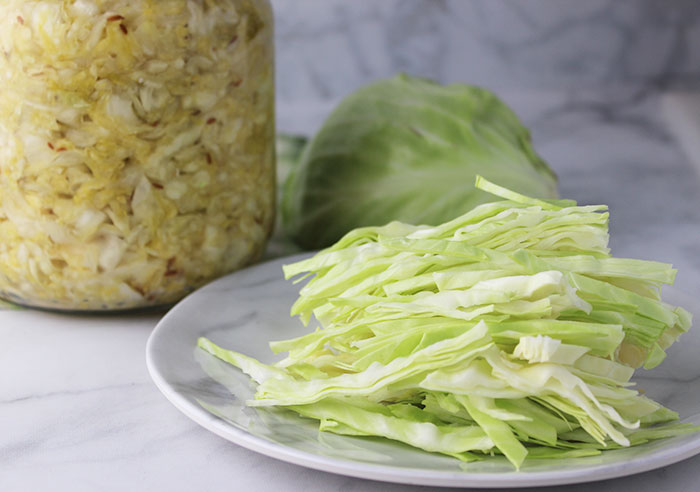
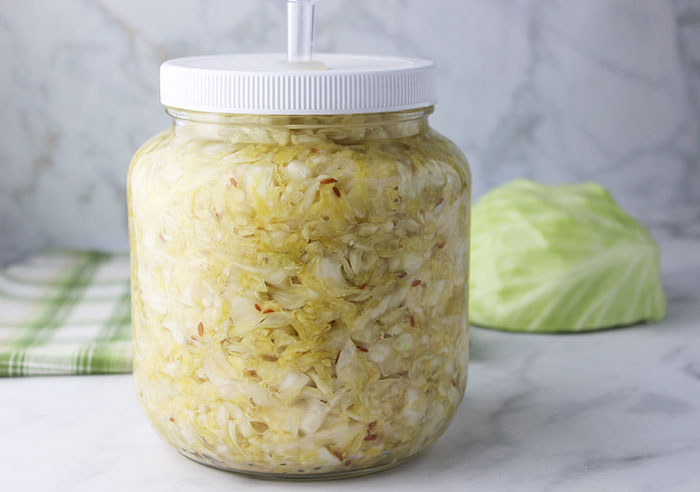
Why Make Homemade Sauerkraut?
Learn how to make two basic sauerkraut's on our sauerkraut recipes page.
Today, there is not only a resurgence of raw pickled vegetable consumption occurring among a more main stream audience, but also the concept of making homemade vegetable ferments is growing more and more popular every day.
While there has been a rapid increase of companies selling raw fermented sauerkraut's and vegetable blends, there is nothing quite like the satisfaction of preparing and creating your own homemade combinations.
You not only will save quite a bit cost-wise, as commercial brands are notoriously pricey, you can eventually tailor them to your own personal taste preferences and health goals.
Culturing your own jar of vegetables is a basic introduction to the world of "lacto-fermentation" that might continue to additionally inspire the practice of fermenting other types of foods you may also wish to create.
Some of our personal homemade fermented food favorites include miso, tempeh, kombucha, kefir, natto as well as different types of nut and seed cheeses.
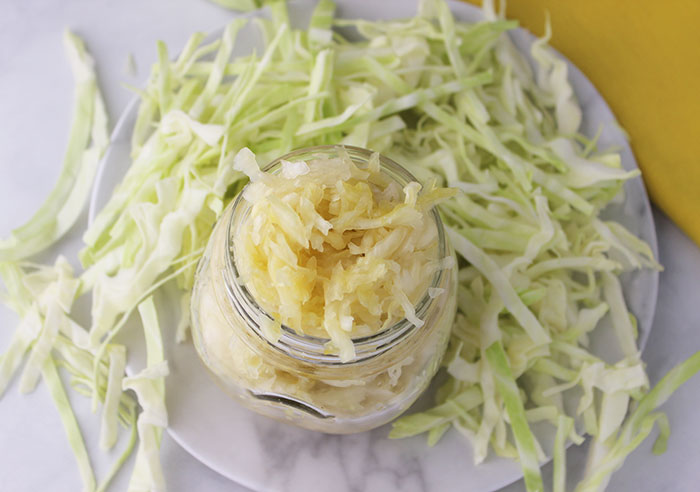
How to Use
Cultured vegetables like sauerkraut are typically consumed as condiments with meals, combining well with proteins, grains, fats and starchy vegetables.
Sauerkraut can be eaten with salads, in nori wraps, with appetizers, atop low-temp soups and is a traditional sandwich ingredient. The tangy flavor also makes a great addition to blended salad dressing recipes.
Usually about 1T to 1/4 cup is generally considered a good portion size for therapeutic benefits.
It is important to never heat the cultured cabbage over 115°F (47°C) as this will destroy their beneficial nutrients, killing all microflora and living enzyme content.
Also see our fermented food recipes for more on how to make your own tempeh, miso, kombucha, fermented grape leaves, sauerkraut and other cultured foods.
Precautions:
It is important to consult with a healthcare professional before adding sauerkraut to your diet if you have IBS, leaky gut or other digestive issues. When consumed in excess, sauerkraut may cause intestinal gas, bloating and/or increased bowel movements. Seek the advice of a medical physician before adding fermented foods to your diet if you have mold allergies, are pregnant, nursing, taking prescribed medications or have a serious health condition.
Shop Related Products (About Affiliates & Amazon Associate Paid Links)
Affiliate Disclaimer: This section contains affiliate product links. If you make a purchase through our recommended links, we receive a small commission at no additional cost to you. Thanks for the support.


